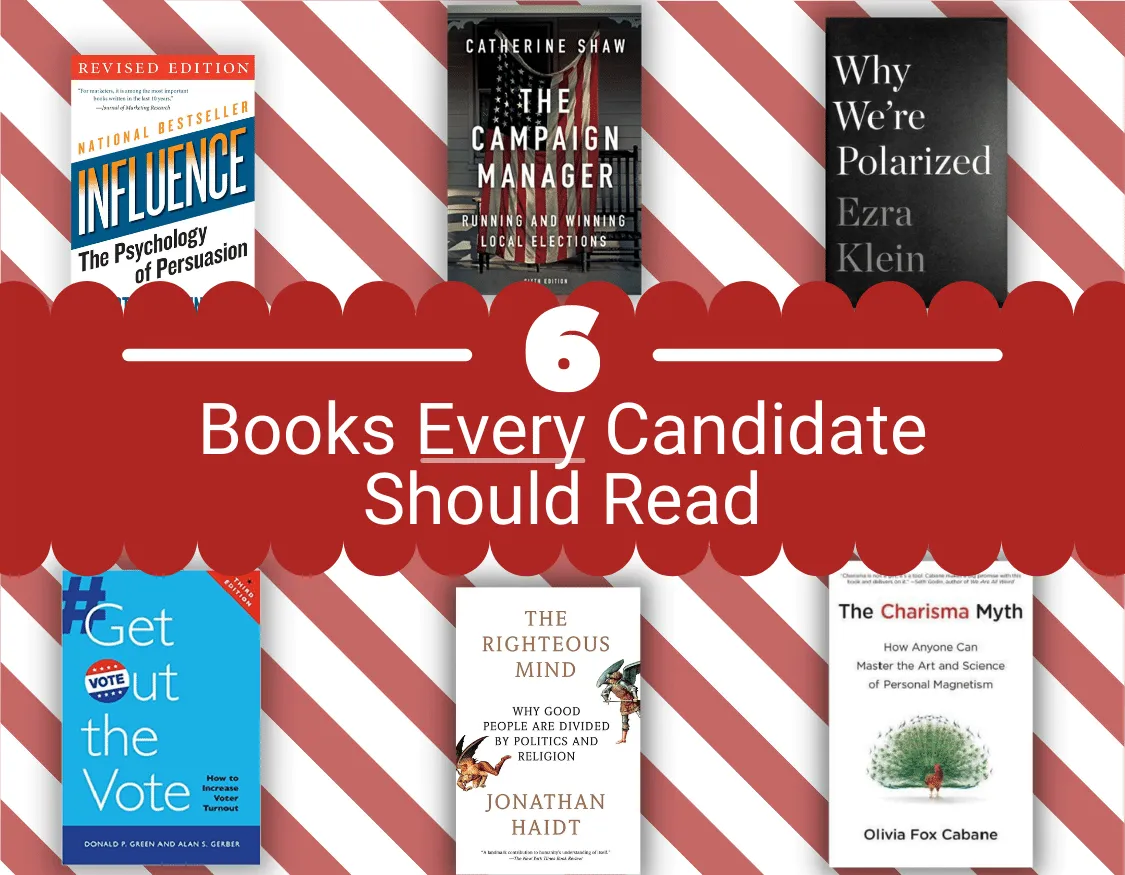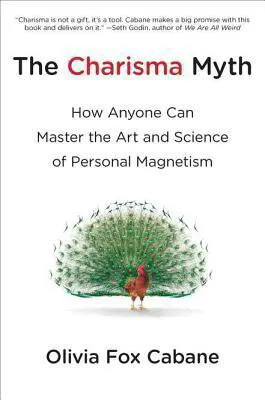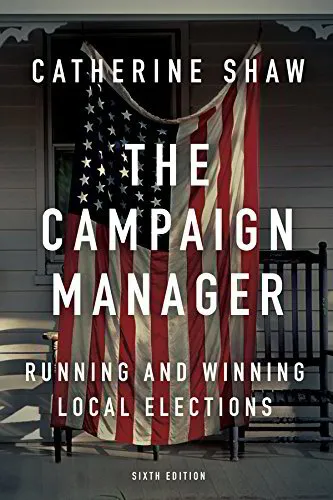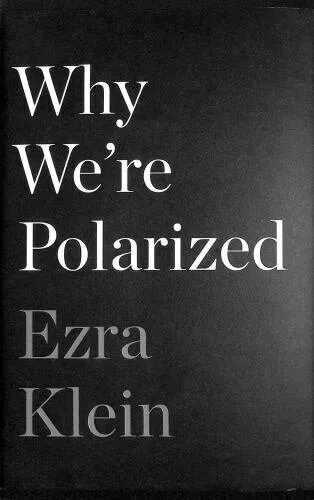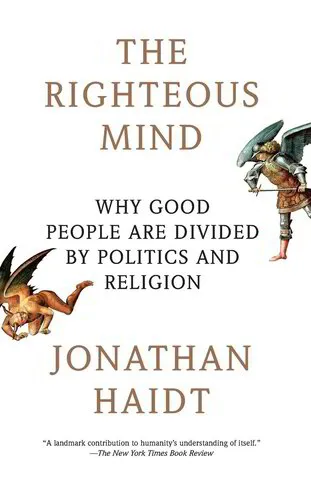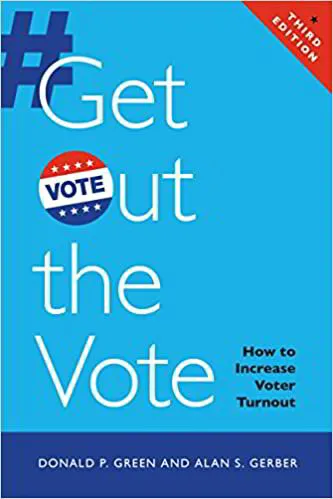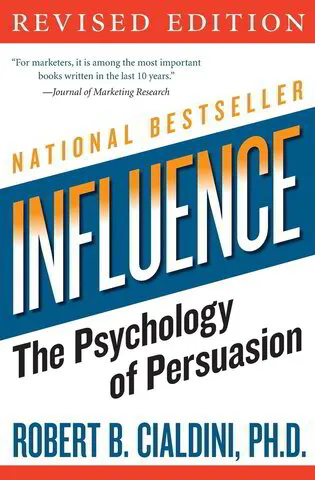Running for office is a big undertaking. There's the logistics of running a campaign, understanding how people think about politics, thinking of how to get people to like you and your message enough to vote for you. With over 500,000 elected officials in the United States there is a shockingly small number of good books and resources for people to help them run for office.
Below is the list of books we believe every candidate should read. They include books on campaigning and politics, on how people think, how to be charismatic, and understanding how people interact with politics. Check out our list below of six books we believe every candidate for office should read.
Charisma is the lifeblood of politics. Stories abound on the magnetism of Bill Clinton and the likeability of Ronald Reagan. Making people like you in a one-on-one setting can make or break a candidate. It seems mystical, a supernatural magnetism that some people have and others don’t.
Olivia Fox Cabane goes through academic research and years of teaching charisma to show that there’s nothing mystical about it at all, charisma can be learned just like any other skill. It essentially comes down to a mix of three ingredients: presence, power, and warmth. Presence being the focus you have on the person and what they’re saying; power being confidence and control over the situation; warmth being signs of approachability and kindness.
Olivia fills The Charisma Myth with real, actionable examples and exercises to help you increase these three skills to make you likable and magnetic to the people you meet. None of the advice is earth-shattering, things like listening intently to people and putting out positive body language, but you’ll find yourself referencing them time and time again in real world situations. There are a lot of “charisma” books out there, and they’re mostly focused on sales or motivational self-help. This book is practical and aligns perfectly for political candidates.
It’s shocking how few good “how to” campaign books there are out there. “Winning Your Election the Wellstone Way” is a classic for progressive candidates, and “Campaign Manager: Running and Winning Local Elections” is a great non-partisan how-to manual on running a successful campaign.
It’s an introduction to the basics of running a local campaign, with all of the in-the-weeds details you need to save money and point you in the right direction. It starts with “The Ten Commandments of Campaigning” which includes good advice like “honor thy base”, “aim at the souls that can be saved”, “money is thy savior” and more. From there it leads into district analysis, social media, lawn signs, fundraising, and anything else you need to understand the basics of running a campaign.
What you'll find is there are no secrets or wizardry to running a good campaign, there are just fundamentals. You have to reach out to voters, you have to raise money to reach them, you have to find a message that works for your campaign, and you have to execute your plan. It can feel daunting, but this easy-to-read and simple-to-understand book will put you on the right track.
“Why We’re Polarized” by Ezra Klein is a deep dive into the causes and ramifications of our deeply divided nation. It’s a fascinating journey into this from one of the great journalists writing today. Understanding this polarization isn’t critical to run for office, you don’t need to be a political scientist to get people to vote for you. However, “Why We’re Polarized” goes well beyond just analyzing this important issue.
The book essentially distills down decades of research in partisanship and identity to explain in just 300 pages some of the most important research in why people vote the way they do. Much of this can be found in more academic books like “Democracy for Realists”, but this is a much shorter and more enjoyable read to give you the same overview.
Essentially what Ezra Klein outlines is that America has always been polarized, just not down partisan lines. There were conservative Democrats and liberal Democrats, conservative Republicans and liberal Republicans. Now that’s shifted, and the high stakes culture wars are wars of political party that envelope everything around it, especially campaigns. In this he dives into how party now takes center stage on everything, even in areas that were previously about other issues. There’s a lot to chew on and a lot to understand in a world where even local elections are sucked into the national political fray.
Similar to Why We’re Polarized, this book looks at our increasingly divided nation, though it takes a slightly different tack. While why we’re polarized looks at the big sociological movements that created our present day. However, the "Righteous Mind: Why Good People are Divided by Politics and Religion" turns inward. The Righteous Mind dives into the history of humans as a species, the “only super-social mammal” as author Jonathan Haidt calls us. To do this we had to create a complex system of ethics and morality that pushed us to put the good of the whole over ourselves as individuals. Without these deeply hardwired ethical intuitions, we would never have survived as a species.
As a result we all interpret these moral values differently, which results in modern voters who feel extremely righteous in their worldview, and totally bewildered by the opposition. These "moral pillars" are put under the microscope to analyze the evolutionary and modern political ramifications. These are:
- Care/Harm
- Fairness/Cheating
- Loyalty/Betrayal
- Authority/Subversion
- Sanctity/Degradation
- Liberty/Oppression
To understand your voters, and the world at large, Haidt argues we need to understand our voting behaviors through the lenses of these moral pillars. Democrats, he argues, focus nearly entirely on Care/Harm and Fairness/Cheating, while Republicans are about evenly split between all six. He goes into tons of moral and ethical theories to sympathetically analyze and understand why people believe what they believe, and why those beliefs can be so passionate. It’s a good read to understand your voters as people, and to help you reframe your policies for people that may believe differently from you.
Political campaigning has always contained a lot of folk wisdom. Turn on CNN at any given time and you’ll see talking heads go on about candidates and how their campaign is effective or not. These opinions are usually not based in anything definitive, just their opinions put forward as facts. These opinions can be good, but frequently they’re not.
"Get Out The Vote: How to Increase Voter Turnout" is the antidote to this. It’s written by two preeminent political scientists who have spent decades conducting research on what works and what doesn’t in persuading people to vote. But this isn’t a dry research book, Gerber and Green took these data and created an easy-to-understand, very practical book that has become the desk resource for campaign managers across the country.
They look at various “treatments” for voters, ranging from phone calling, sending them a robocall, a mailer, or knocking on their door, and statistically compare how effective those campaign investments were in getting people out to vote as compared to the “control” group. These random control studies are the gold standard of scientific research, and this is an easy-to-read look at all of the research that has been done on the subject. Because persuasion is so hard to quantify, research like this is as close as you’ll get to understanding definitively what moves voters to take action. They dive deeper, talking about what research has shown to be most effective in each of these campaign tactics while comparing costs.
Influence is a modern classic in the business world, with many marketing professionals swearing by the insights Robert Cialdini provides in this book. Like other books on this list it’s heavy on research but easy to breeze through, never dry and with numerous anecdotes to better bring the research to life.
Essentially Cialdini studies the tactics that “compliance professionals” use to move people to getting to “yes”. These compliance professionals range from sales people, marketers, fundraisers, recruiters, and (yes) politicians. Cialdini breaks these tactics down into six “weapons of influence”: reciprocity, scarcity, authority, commitment and consistency, liking, and consensus. Nearly all of these tactics connect to a core part of your campaign. Liking and authority are useful in bringing voters over to your side. Scarcity and commitment are two core tactics of campaign fundraising. Commitment and consistency help to bring trust. In total it is a great way to understand why and how people make decisions and the underlying psychology of what gets them there.


